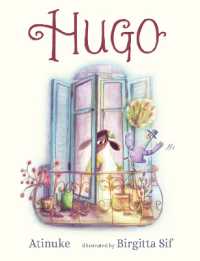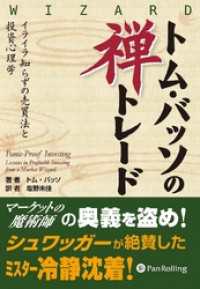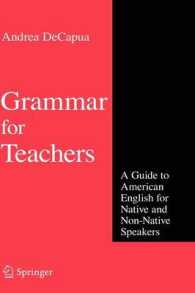- ホーム
- > 洋書
- > 英文書
- > Literary Criticism
基本説明
New in paperback. Hardcover was published in 1996. Examines the historical formation of modern Japanese literature through a fundamental reassessment of its most characteristic form, the "I-novel," an autobiographical narrative.
Full Description
Narrating the Self examines the historical formation of modern Japanese literature through a fundamental reassessment of its most characteristic form, the 'I-novel, ' an autobiographical narrative thought to recount the details of the writer's personal life thinly veiled as fiction. Closely analysing a range of texts from the late nineteenth century through to the present day, the author argues that the 'I-novel' is not a given form of text that can be objectively identified, but a historically constructed reading mode and cultural paradigm that not only regulated the production and reception of literary texts but also defined cultural identity and national tradition. Instead of emphasising, as others have, the thematic and formal elements of novels traditionally placed in this category, she explores the historical formation of a field of discourse in which the 'I-novel' was retroactively created and defined.
Contents
Introduction: narratives of Japanese modernity; Part I. The Novel and the Self as Master Signifiers: 1. The position of the Shosetsu: paradigm change and new literary discourse; 2. Self, Christianity, and language: Genbun-itchi and concern for the self; 3. The furor over the I-novel: the question of authenticity; Part II. Rereading the I-Novel: 4. Love, sexuality, and nature: Tayama Katai's Quilt and Japanese naturalism; 5. Shaping life, shaping the past: Shiga Naoya's narratives of recollection; Part III. Traces of the Self: 6. Crossing boundaries: truth and fiction in Nagai Kafu's Strange Tale from East of the River; 7. Allegories of modernity: parodic confession in Tanizaki Jun'ichiro's Fool's Love; Epilogue: Tanizaki's speaking subject and creation of tradition; Notes; Bibliography; Index.








